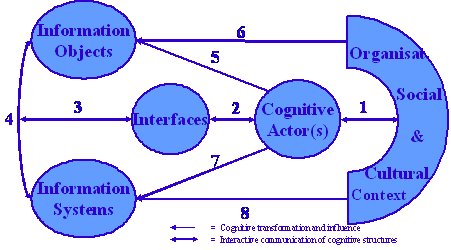Search sessions
The information seeking community seems to be experiencing a renewed interest in session-based approaches to information seeking after years of focusing on single-query interaction. Yesterday at CHI2010, Anne Aula, Rehan M. Khan, and Zhiwei Guan reported on a study of searchers’ behavior. Rather than looking at single-query performance, they analyzed searchers’ query reformulation tactics to characterize difficult vs. easy search tasks. They found a variety of indicators that correlate with users’ difficulties in articulating efficient queries. This work is important as it hints at the possibility that web search engines can diagnose user behavior and alter the interaction with users to facilitate their search process.
